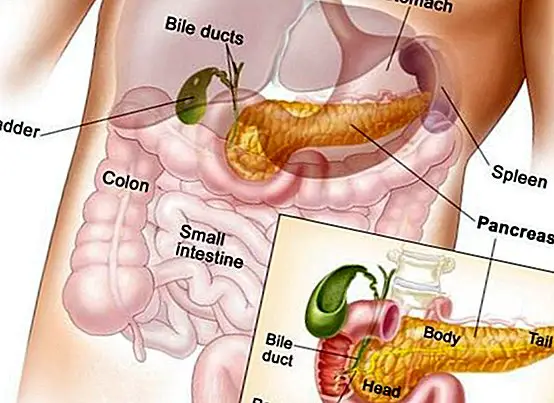Lentils: complete and very nutritious. Benefits and properties
Who has not ever eaten a delicious bowl of lentils at Christmas, as a way to enjoy an exquisite and wonderful healthy christmas? It is a tremendously popular dish in our country, so much so that it is known almost traditionally under the name of New Year's lentils, derived from an old belief that indicates that consuming lentils before the end of the year will bring luck during the next 12 months.
Anyway, we are lucky or not, the truth is that, lentils are delicious vegetables, which in addition to having important benefits and properties for the health of those people who consume them with some regularity, they have equally interesting nutritional values.

Impressive benefits of lentils
Small but very rich in essential nutrients
There is no doubt that lentils are small legumes, of characteristic appearance and shape. However, despite having a small size, they contain a wide variety of interesting essential nutrients.
In particular, for example, they stand out for their high content of B vitamins (especially B1 and B2), as well as minerals such as copper, magnesium, phosphorus, selenium, iron and zinc.
In fact, for those people who follow a vegetarian food, lentils are one of the most important and prominent sources of iron, as it is combined with amino acids.
In addition, its fat content is relatively low, and its contribution in complex carbohydrates help its consumption does not cause a rapid increase in blood glucose.
Nutritional information for lentils (per 100 grams of edible part):
- Energy: 310 kcal.
- Carbohydrates: 50.8 g
- Proteins: 23.5 g
- Total fat: 1.4 g
- Fiber: 10 g
- Cholesterol: 0 mg.
- Vitamins: vitamin A or retinol (10 ug), B1 (0.43 mg), B2: (0.26 mg), B3 (2.2 mg), B6 (0.60 mg), B9 (168 μg), C ( 3.40 mg).
- Minerals: sodium (4 mg), potassium (810 mg), calcium (74 mg), phosphorus (412 mg), magnesium (77 mg), iron (6.9 ug) and zinc (5.0 mg).
High iron content, ideal in case of anemia
They are essential for people with anemia, since their abundance in iron is easily assimilable. However, although they are very nutritious, it is recommended not to consume certainly excessive amounts.
In this sense, we know that iron is essential for the production of red blood cells, in addition to actively participating in the proper functioning of our cells.
Ideal during pregnancy
Folic acid is an essential and essential vitamin not only during pregnancy, but also before conception occurs, since it helps to prevent possible deformations in the placenta that could cause the pregnancy to end in an abortion.
In addition, during pregnancy, it is essential for the prevention of birth defects in pregnancy and in the spine, specifically preventing the appearance of anencephaly or spina bifida.

Thanks to this vitamin content, it has also been found to help prevent breast cancer, according to a study published inBreast Cancer Research and Treatment.
In this sense, lentils are rich in folic acid, so that their regular consumption is very useful before and during pregnancy. In fact, 100 grams of lentils provide around 168 μg of folic acid.
Useful in case of diabetes
As with other legumes, consuming lentils regularly is very useful at the time of control blood sugar levels, being very appropriate in case of suffering type 2 diabetes.
Therefore, thanks to this quality, they are also highly recommended to reduce the risks of suffering coronary or cardiovascular disease from these people.
Interesting against constipation
Because of its fiber content, lentils are recommended in case of constipation, by helping in a very positive way when it comes to improving our intestinal transit in a totally natural way.
Moreover, they become a wonderful way to provide fiber to our diet, especially when consumption is regular.
How to cook lentils to make them more complete and more digestive?
The lentils can be complemented with rice, since like the rest of the legumes, they constitute an important source of proteins.
This is to try to make the lentils more complete. If what we want is to make them more digestive, so that we can digest them much less, it is advisable to add to the cooking water herbs such as fennel, laurel or cumin, which besides being digestive will help us to provide an aroma and a lot of flavor more interesting.
And how to consume them to absorb all the iron?
Sometimes it can happen that our body is not able to absorb all the iron that the food gives us (when it comes to iron "non-heme").
In the case of lentils in particular, many nutritionists advise consuming them with a glass of orange juice or grapefruit, since vitamin C helps and improves the absorption of "non-heme" iron. Or eat an orange for dessert.
It can also be very interesting to add a splash of freshly squeezed lemon juice.
In this sense, it is advisable to avoid some foods that may hinder the adequate assimilation of iron, as is the case of oxalates (such as Swiss chard, spinach or beetroot) and phosphates (especially soy and dairy, such as cheese). .

Main contraindications of lentils: when it is not appropriate to eat them
It is not advisable to eat lentils in case of digestive problems, intestinal affections or delicate stomach.
In addition, since they have uric acid and purines in their composition, excessive consumption of lentils in case of gout, osteoarthritis and arthritis is not advisable. This article is published for informational purposes only. You can not and should not replace the consultation with a Nutritionist. We advise you to consult your trusted Nutritionist. ThemesFood Legumes


